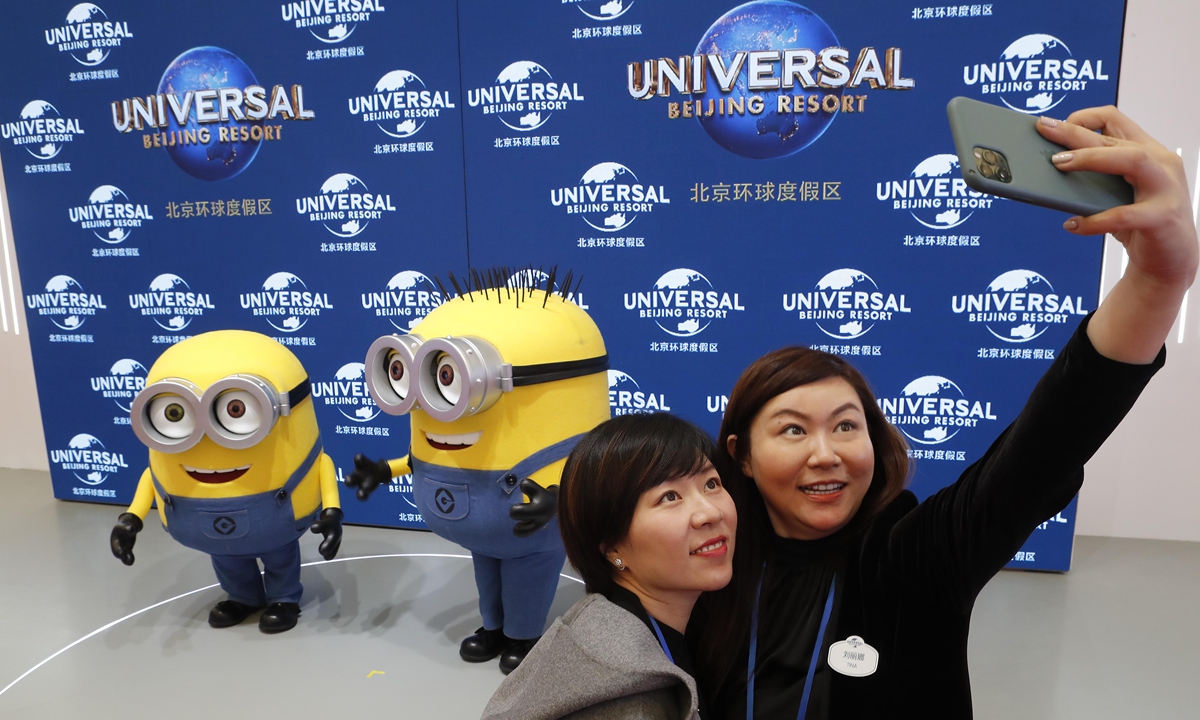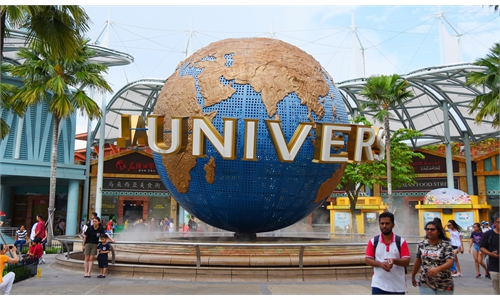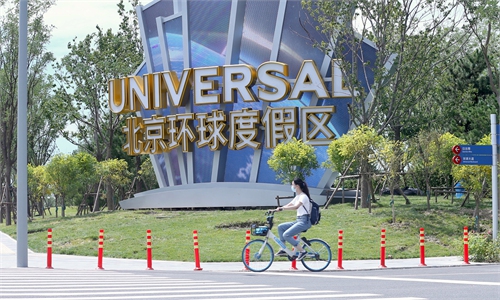
Visitors take selfies at the booth of Universal Studios Beijing at the China International Travel Mart 2020 in Shanghai on Monday. Sponsored by the Chinese Ministry of Culture and Tourism, Civil Aviation Administration of China and Shanghai Municipal People's Government, the mart is meant to improve the dual-circulation development model amid the coronavirus pandemic. Photo: cnsphoto
Beijing's Universal Studios Resort announced on Monday that it will officially open for business on September 20, in what analysts call a vivid testament to China's massive consumption market as well as the country's effective control of the COVID-19 epidemic.
The opening of the theme park was postponed for several months due to recent outbreaks of the COVID-19. But that did not affect consumers' enthusiasm for the long-awaited opening of the resort.
Data from qunar.com showed that within half an hour of the official announcement, the number of searches for air tickets to Beijing during the upcoming Mid-Autumn Festival was 11 times higher than that of the same period last week. Beijing is tipped to be one of the hottest destinations for the upcoming holidays.
The Mid-Autumn Festival will fall on September 21, one day after Universal's opening ceremony, while the National Day holiday will begin on October 1.
"In general, I think the opening of the Beijing Universal Studios Resort is a vivid display of China's COVID-19 prevention and control achievements to the whole world," He Jianmin, a professor from the Shanghai University of Finance and Economics, told the Global Times on Monday.
He predicted that the resort could attract about 10 million visits per year and generate 3 billion yuan ($463 million) of direct revenues including tickets, catering and hotels, as well as about 15 billion yuan in indirect revenues.
However, in the first year, visitors may only reach 6 million as it needs to gradually move from trial operations to official opening to full operations, he said.
The resort may still find it hard to reach the target for visitors in the first year, given the pandemic's impact on travel, Lin Huanjie, director of the Institute for Theme Park Studies in China, also told the Global Times.
But he added that the resort will bring growing spending power in Beijing.
A report compiled by the China Tourism Academy in May showed that consumption in Shanghai Disneyland has lifted Shanghai's GDP by 0.21 percent, while contributing to the city's annual tourism income by 4.09 percent from June 2016 to June 2019.
The number of visitors attended the Shanghai Disneyland's theme parade had risen by 20 percent from 2018 to 2021, and repeating visitors had risen by about 50 percent from 2017 to 2019.
The Universal resort in Beijing is conducting a trial run from September 1-19 following three months of stress tests. The soft opening includes limited access for selected guests, including the resort partners, as well as a group of fans chosen from a marketing campaign.
The venue, located in the capital city's eastern district of Tongzhou, includes the Universal Studios theme park, Universal CityWalk and two hotels, along with 37 recreational facilities, themed attractions and dozens of food and beverage outlets.
Universal Studios Beijing will be the fifth Universal Studio in the world and the third in Asia.


